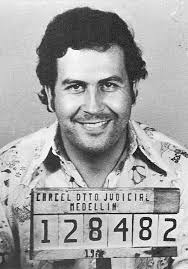
Introduction
Pablo Escobar, often considered one of the most infamous drug lords in history, has left a significant mark on both Colombia and the world. His operations in the 1980s and early 1990s made him one of the richest men in the world and defined an era of drug trafficking that transformed the geopolitical landscape. Understanding Escobar’s life is crucial, as it provides insights into the global drug trade, economic disparity, and the repercussions of law enforcement on such powerful figures.
Rise to Power
born on December 1, 1949, in Rionegro, Colombia, Pablo Emilio Escobar Gaviria rose from humble beginnings to become the head of the Medellín Cartel. Initially starting out in petty crime, he made his fortune by engaging in the cocaine trade that surged in popularity in the United States during the 1980s. His cartel was responsible for the majority of the cocaine smuggled into the country, earning billions of dollars annually and establishing Escobar as one of the world’s wealthiest individuals.
The Reign of Terror
Escobar’s empire was notorious not only for its wealth but also for its ruthlessness. He employed a strategy of violence and intimidation, using assassinations and bombings to eliminate competitors and instill fear in the government and law enforcement. His infamous slogan, “Plata o Plomo,” meaning “silver or lead,” offered a choice between bribery or death to officials, further solidifying his power. Thousands of lives were lost during this period, including that of police officers, journalists, and public officials.
Fall from Grace
Despite his immense power, Escobar’s reign eventually came to an end. In 1993, after a lengthy hunt by Colombian National Police, aided by the United States, Escobar was killed in a shootout. His death marked a significant moment in the struggle against drug trafficking but did not eliminate the drug trade in Colombia. Instead, it led to the rise of other factions and cartels, further complicating the situation.
Legacy and Current Relevance
Escobar’s life continues to fascinate and horrify people worldwide. His story has been depicted in numerous books, documentaries, and television series, contributing to a culture that both condemns and glorifies his criminal lifestyle. The socio-economic issues that fueled the drug trade in Colombia remain relevant today, as do the discussions surrounding drug policy and law enforcement. The historical lessons learned from Escobar’s time serve as crucial reminders of the complexities involved in global drug trafficking and its far-reaching effects on society.
Conclusion
The legacy of Pablo Escobar is a multifaceted subject that encapsulates themes of power, violence, and the drug trade’s impact on both local and international communities. As the world continues to grapple with the consequences of illicit drugs, understanding Escobar’s rise and fall is essential in forging future policies and strategies to combat drug-related crime.
You may also like

An Introduction to Crime 101: Exploring Its Basics and Impact

Exploring East Grinstead: History and Attractions
